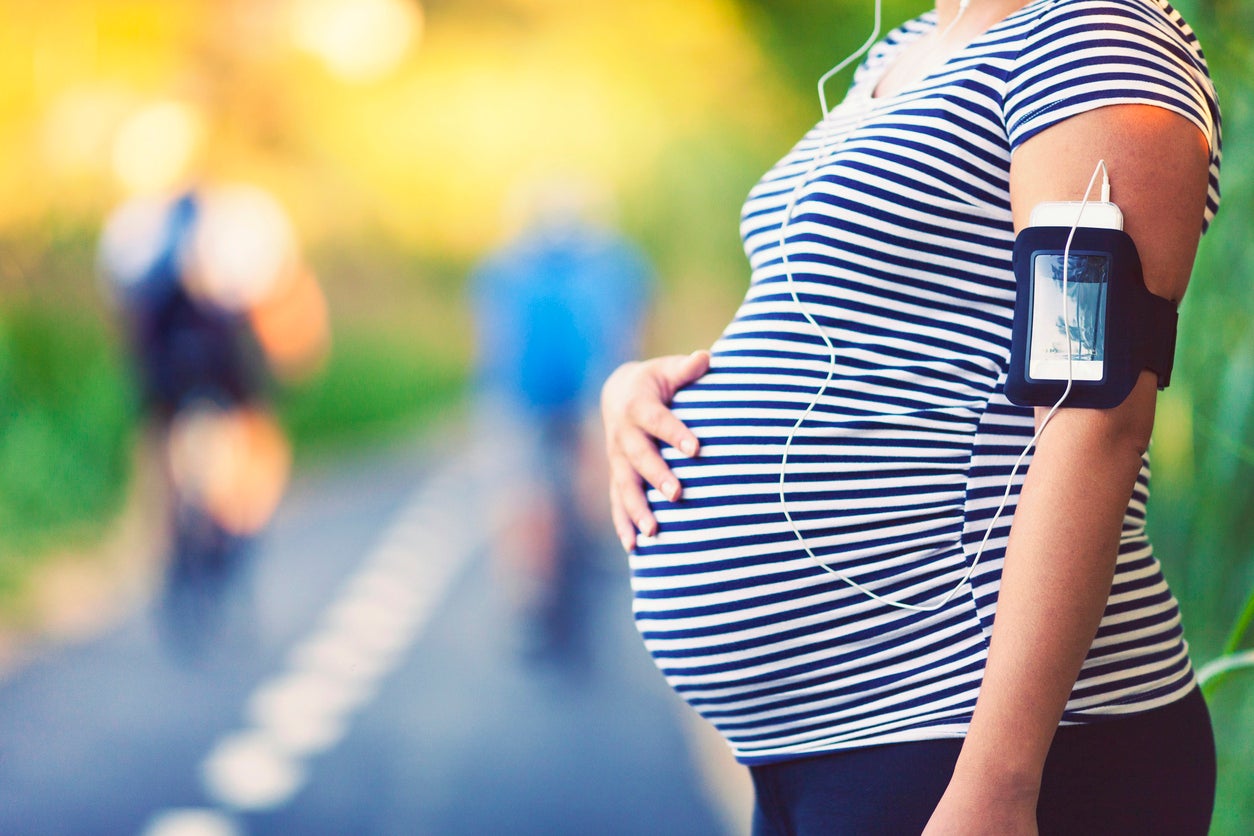Exercising during pregnancy can reduce time spent in labour, study finds
There are many proven benefits to exercising during pregnancy

Your support helps us to tell the story
From reproductive rights to climate change to Big Tech, The Independent is on the ground when the story is developing. Whether it's investigating the financials of Elon Musk's pro-Trump PAC or producing our latest documentary, 'The A Word', which shines a light on the American women fighting for reproductive rights, we know how important it is to parse out the facts from the messaging.
At such a critical moment in US history, we need reporters on the ground. Your donation allows us to keep sending journalists to speak to both sides of the story.
The Independent is trusted by Americans across the entire political spectrum. And unlike many other quality news outlets, we choose not to lock Americans out of our reporting and analysis with paywalls. We believe quality journalism should be available to everyone, paid for by those who can afford it.
Your support makes all the difference.Maintaining an active lifestyle during pregnancy can reduce the amount of time spent in labour during childbirth, a study has concluded.
There are many proven benefits to exercising while pregnant, such as easing back pain, elevating your energy levels and aiding with post-delivery recovery, as covered by What To Expect.
However, new research conducted by the Technical University of Madrid has discovered that it can also impact how long expectant mothers spend in labour.
The team of researchers, led by Professor Ruben Barakat, carried out a study with 508 healthy women by randomly assigning them into two groups.
253 women were put in the control group, while 255 women were placed in the exercise group.
Those in the exercise group were given a moderate aerobic exercise programme throughout their pregnancies, which they followed during three weekly sessions.
The researchers then analysed a number of factors while each woman gave birth, including the duration of each stage of labour, the mode of delivery, maternal weight gain, use of an epidural and the weight of the baby.
They came to the conclusion that the expectant mothers who had partaken in aerobic workouts during their pregnancies were more likely to spend less time in labour than the women who hadn’t.
“A supervised physical exercise programme throughout pregnancy decreased the duration of the first phase of labour as well as total time of the first two phases together, leading to a decrease in total labour time,” they wrote.
The women in the exercise group were also less likely to use an epidural during childbirth.
Furthermore, neonate macrosomia, which is when a newborn is significantly larger than average, was more prevalent among the mothers in the control group.
While exercising during pregnancy may help mothers restore their fitness after giving birth, getting back into shape after carrying a baby for nine months is far easier said than done.
Actor Blake Lively recently revealed the struggles that she faced after giving birth.
“Turns out you can’t lose the 61lbs you gained during pregnancy by just scrolling through Instagram and wondering why you don’t look like all the bikini models,” she wrote in an Instagram post.
Join our commenting forum
Join thought-provoking conversations, follow other Independent readers and see their replies
Comments